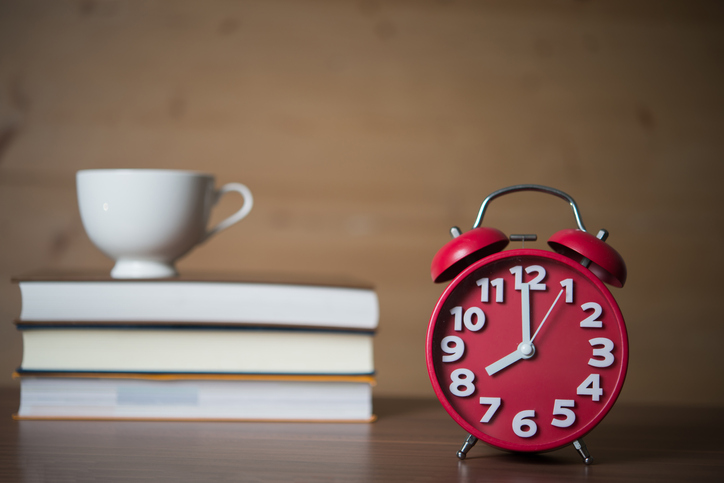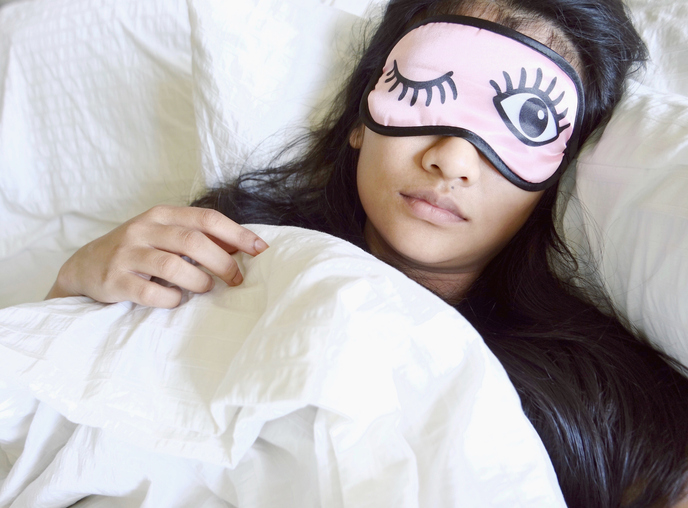Iconic Singer Stevie Nicks Goes to Bed at 8am?! Here’s How You Can Be Proactive About Insomnia

By Joy Stephenson-Laws, J.D., Founder
Gandhi said, “Each night, when I go to sleep, I die. And the next morning, when I wake up, I’m reborn.”
Although we don’t actually die when we go to sleep, if we sleep well and sufficiently, we may wake up feeling new and revitalized - kind of like we are born again.
Aside from making us feel good, I cannot say enough how crucial sleep is to our overall health and wellbeing. To give you a bit more perspective, the Centers for Disease Control and Prevention (CDC) declared sleep deprivation as a health crisis.
Furthermore, a lack of sleep may:
- Lead to immoral and unethical behavior
- Affect your hormones and as a result increase your chances of gaining weight and developing type 2 diabetes
- Make overcoming depressive symptoms very challenging, especially in boomers and older people
- Cause impaired immune function (And now, due to COVID-19, we really need our immune systems to be in top shape)
- Increase the risk of developing cardiovascular disease

Take, for example, iconic singer and member of the very famous rock band Fleetwood Mac, Stevie Nicks. She recently shared that she suffers from insomnia and doesn’t go to bed until 8am.
“It used to be I could sleep from 5am to 1pm,” Nicks said, in an interview with Vogue Magazine.
“Now I don’t go to sleep until 8am. I need therapy, or I need someone to hit me on the head with a hammer.”
She is now 72, which makes her especially vulnerable to the potential consequences of insomnia. Reportedly, one in four Americans develop insomnia each year. And you may currently be experiencing COVID-19 anxiety that is keeping you awake at night or disrupting your sleep. Ideally, adults need seven to eight hours of sleep every night.
I think Nicks is right about needing therapy (the hammer, no!). For example, “Cognitive Behavioral Therapy for Insomnia, often called CBT-I, is an approved method for treating insomnia without the use of sleeping pills,” according to the National Sleep Foundation.
This type of therapy addresses thoughts, behaviors and other patterns that may need to be changed in order to help you get more sleep. Of course, check with your doctor or a competent healthcare professional to see if medication is appropriate for you.
Fortunately, there are many things you can do in your daily life in order to help ensure you will get those seven to eight hours of sleep every night. And what’s so great about these lifestyle habits is that they are similar to those recommended for preventing and treating depressive symptoms and other health issues. Here are a few of them:
- Maintain a balanced, nutrient-rich diet (it is also important to take routine nutrient tests. We are all prone to nutrient imbalances and deficiencies).
- Be physically active, (don’t forget to fuel your body properly both before and after physical activity).
- Drink alcohol in moderation (if at all).
- Consider being a dog owner if you are not already.
- Avoid smoking at all costs
- Manage chronic pain (cryotherapy, CBD and magnesium may be very effective tools)
- Manage stress that can disrupt sleep (a healthy diet and exercise can really help alleviate stress. You can also try yoga, aromatherapy and meditation).
It is also extremely important to practice good sleep hygiene. Make it a habit to reduce electronic use before bedtime. Also consider putting plants in your bedroom and home.
As always, speak with a competent healthcare professional about your sleep issues. The root of your issues may even be due to taking certain medications or from having an existing health issue such as obesity or diabetes.
Sleep well and enjoy your healthy life!
Disclaimer: This article is not intended to provide medical advice. Please consult with your doctor or another competent healthcare practitioner to get specific medical advice for your situation.
The pH professional health care team includes recognized experts from a variety of health care and related disciplines, including physicians, attorneys, nutritionists, nurses and certified fitness instructors. This team also includes the members of the pH Medical Advisory Board, which constantly monitors all pH programs, products and services. To learn more about the pH Medical Advisory Board, click here.







